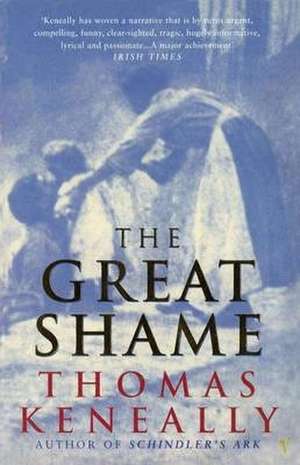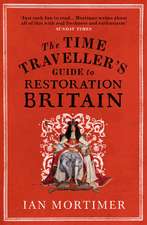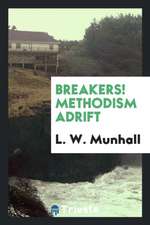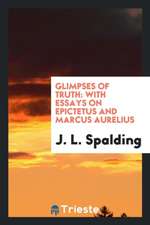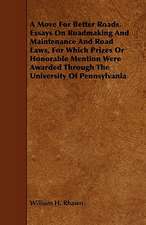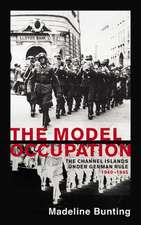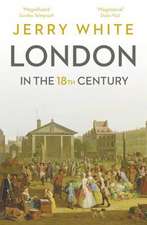The Great Shame
Autor Thomas Keneallyen Limba Engleză Paperback – 7 oct 1999
| Toate formatele și edițiile | Preț | Express |
|---|---|---|
| Paperback (2) | 122.08 lei 3-5 săpt. | +22.29 lei 7-11 zile |
| Vintage Publishing – 7 oct 1999 | 122.08 lei 3-5 săpt. | +22.29 lei 7-11 zile |
| Anchor Books – 31 aug 2000 | 152.36 lei 3-5 săpt. |
Preț: 122.08 lei
Nou
Puncte Express: 183
Preț estimativ în valută:
23.36€ • 24.39$ • 19.29£
23.36€ • 24.39$ • 19.29£
Carte disponibilă
Livrare economică 25 martie-08 aprilie
Livrare express 11-15 martie pentru 32.28 lei
Preluare comenzi: 021 569.72.76
Specificații
ISBN-13: 9780749386047
ISBN-10: 0749386045
Pagini: 784
Ilustrații: illustrations facsimiles, maps, portraits
Dimensiuni: 131 x 198 x 47 mm
Greutate: 0.54 kg
Editura: Vintage Publishing
Locul publicării:United Kingdom
ISBN-10: 0749386045
Pagini: 784
Ilustrații: illustrations facsimiles, maps, portraits
Dimensiuni: 131 x 198 x 47 mm
Greutate: 0.54 kg
Editura: Vintage Publishing
Locul publicării:United Kingdom
Notă biografică
Thomas Keneally is one of Australia's leading literary figures. He has won international acclaim for his novels, including Schindler's List, the basis for the Steven Spielberg film and winner of the Booker Prize; and The Chant of Jimmie Blacksmith. He lives in Sydney, Australia.
Extras
Up to the moment we write, there have been about thirty unfortunate individuals convicted under the Whiteboy Act, and therefore destined to spend the remainder of their lives in a clime far, far distant from their native homes from the land which holds all that is dear to them in the world.
--Galway Free Press,
31 March 1832
For English and Anglo-Irish noblemen, the post of Lord Lieutenant of Ireland was both a challenge and a reward. The Lord Lieutenant was chief executive of Britain's most ungovernable kingdom but also the British monarch's representative, and the centre and apogee of Irish society. In the bright July of 1833, the Lord Lieutenant happened to be a friendly and reckless 73-year-old womaniser named Richard Colley Wellesley, 2nd Earl of Mornington. He had the benefit of being the elder brother of the Duke of Wellington, conqueror of Napoleon and former Tory Prime Minister. For the mass of Irish peasants, it did not matter a great deal who held the post. The known face of their landlord or his agent, how much land they had to live off, how secure was their tenure, and what they could sell their labour for these were the intimate and recurrent concerns of their lives. People of quality though, in towns or on their estates in the west of Ireland, wanted to know about the Lord Lieutenant's movements, levees and recreation. They read, for example, accounts of that summer's Kingstown (now Dun Laoghaire) Regatta.
"After the morning sailing races, all the Dublin establishment attended a splendid lunch in a huge marquee pitched in the Commissioner's store yard." Then the Lord Lieutenant and Lord Paget returned to Dublin in separate vehicles, and in Mount Street Paget's horses and vehicle ran into a Dublin urchin. His Lordship reined in the horses to prevent his carriage crushing the child, and footmen carried the bloodied child to Mr Burrowe's, apothecary, Lower Merrion Street. There were hopes for the survival of the little sufferer. The Lord Lieutenant might have enjoyed the opportunity to be of direct effectiveness. He could not have indulged such simple hopes for the health of Ireland as he did for the health of the Mount Street urchin. For in describing the ills of the kingdom of Ireland, commentators of that period rarely knew where to start. In that very same summer of the Lord Lieutenant's encounter with "the incautious child," a peasant cottier and farm labourer from East Galway named Hugh Larkin was waiting in the county gaol in Galway city. He was to be judged for a gesture of discontent against his landlord, and so against the system represented and protected by the Lord Lieutenant, Dublin Castle and the Parliament at Westminster.
Hugh was twenty-four years old, married, blue-eyed, robust, and 5 feet 7 1/2 inches tall. According to his East Galway descendants, he was the intense, lively, likeable son of a widowed mother. Then or later he became hard-drinking, yet his record would not imply he was reckless or utterly headstrong.
Larkin came from a scatter of houses at a crossroads known as Lismany. This name for the landscape in which he had spent his childhood and youth bespoke pre-British ownership. The Irish name was Lios Maine, the fort of Maine, long-ago king of the region called Hy Many. This kingdom was made up of parts of modern Galway, Roscommon and a small slab of modern Tipperary. The Gaelic lords of the region had been dispossessed after the victory of the forces of England's King William III over the Irish at Aughrim, a village north-west of Lismany, in 1691.
During Hugh's childhood people had believed that the old Gaelic system was likely to be reasserted by God in some day of jubilation, but that day now seemed too remote to save him. Hugh's depression in Galway gaol arose chiefly from homesickness for Lismany, his two infant sons, and his wife Esther Tully, whom he had married three years before in the chapel of the Catholic parish of Clontuskert.
That very name, Clontuskert, showed that Hugh's kind of Irish walked the earth with two competing addresses in their heads. For administrative reasons, Dublin Castle had divided the country into Church of Ireland parishes, the smallest local unit, and then into larger baronies, somewhat akin to municipalities. So Larkin's official and English-language address as a member of the United Kingdom was (Church of Ireland) parish of Clontuskert, barony of Longford, County Galway. His emotional and native address, however, was (Catholic) parish of Clontuskert, diocese of Clonfert, Hy Many. Perhaps this double geography the peasants carried in their heads was one of the reasons those in power saw them as sly and duplicitous.
Esther and Hugh, living virtually in the midlands of Ireland, spoke English, the language of government and commerce, when they talked to their landlord or went to market, but courted, sang, praised and mourned in Irish. The courtship of Hugh and Esther had been, if at all characteristic of their society, particularly ardent and poetic, driven by furious longing, observed by an entire rural community which did not countenance fornication, but put a premium on flirtation as an art, and on the extravagant use of the images of desire. Gaelic love verses and songs which have come to us in translation indicate the style of eloquent persuasion Hugh would have been required to use with Esther.
From the Hardcover edition.
--Galway Free Press,
31 March 1832
For English and Anglo-Irish noblemen, the post of Lord Lieutenant of Ireland was both a challenge and a reward. The Lord Lieutenant was chief executive of Britain's most ungovernable kingdom but also the British monarch's representative, and the centre and apogee of Irish society. In the bright July of 1833, the Lord Lieutenant happened to be a friendly and reckless 73-year-old womaniser named Richard Colley Wellesley, 2nd Earl of Mornington. He had the benefit of being the elder brother of the Duke of Wellington, conqueror of Napoleon and former Tory Prime Minister. For the mass of Irish peasants, it did not matter a great deal who held the post. The known face of their landlord or his agent, how much land they had to live off, how secure was their tenure, and what they could sell their labour for these were the intimate and recurrent concerns of their lives. People of quality though, in towns or on their estates in the west of Ireland, wanted to know about the Lord Lieutenant's movements, levees and recreation. They read, for example, accounts of that summer's Kingstown (now Dun Laoghaire) Regatta.
"After the morning sailing races, all the Dublin establishment attended a splendid lunch in a huge marquee pitched in the Commissioner's store yard." Then the Lord Lieutenant and Lord Paget returned to Dublin in separate vehicles, and in Mount Street Paget's horses and vehicle ran into a Dublin urchin. His Lordship reined in the horses to prevent his carriage crushing the child, and footmen carried the bloodied child to Mr Burrowe's, apothecary, Lower Merrion Street. There were hopes for the survival of the little sufferer. The Lord Lieutenant might have enjoyed the opportunity to be of direct effectiveness. He could not have indulged such simple hopes for the health of Ireland as he did for the health of the Mount Street urchin. For in describing the ills of the kingdom of Ireland, commentators of that period rarely knew where to start. In that very same summer of the Lord Lieutenant's encounter with "the incautious child," a peasant cottier and farm labourer from East Galway named Hugh Larkin was waiting in the county gaol in Galway city. He was to be judged for a gesture of discontent against his landlord, and so against the system represented and protected by the Lord Lieutenant, Dublin Castle and the Parliament at Westminster.
Hugh was twenty-four years old, married, blue-eyed, robust, and 5 feet 7 1/2 inches tall. According to his East Galway descendants, he was the intense, lively, likeable son of a widowed mother. Then or later he became hard-drinking, yet his record would not imply he was reckless or utterly headstrong.
Larkin came from a scatter of houses at a crossroads known as Lismany. This name for the landscape in which he had spent his childhood and youth bespoke pre-British ownership. The Irish name was Lios Maine, the fort of Maine, long-ago king of the region called Hy Many. This kingdom was made up of parts of modern Galway, Roscommon and a small slab of modern Tipperary. The Gaelic lords of the region had been dispossessed after the victory of the forces of England's King William III over the Irish at Aughrim, a village north-west of Lismany, in 1691.
During Hugh's childhood people had believed that the old Gaelic system was likely to be reasserted by God in some day of jubilation, but that day now seemed too remote to save him. Hugh's depression in Galway gaol arose chiefly from homesickness for Lismany, his two infant sons, and his wife Esther Tully, whom he had married three years before in the chapel of the Catholic parish of Clontuskert.
That very name, Clontuskert, showed that Hugh's kind of Irish walked the earth with two competing addresses in their heads. For administrative reasons, Dublin Castle had divided the country into Church of Ireland parishes, the smallest local unit, and then into larger baronies, somewhat akin to municipalities. So Larkin's official and English-language address as a member of the United Kingdom was (Church of Ireland) parish of Clontuskert, barony of Longford, County Galway. His emotional and native address, however, was (Catholic) parish of Clontuskert, diocese of Clonfert, Hy Many. Perhaps this double geography the peasants carried in their heads was one of the reasons those in power saw them as sly and duplicitous.
Esther and Hugh, living virtually in the midlands of Ireland, spoke English, the language of government and commerce, when they talked to their landlord or went to market, but courted, sang, praised and mourned in Irish. The courtship of Hugh and Esther had been, if at all characteristic of their society, particularly ardent and poetic, driven by furious longing, observed by an entire rural community which did not countenance fornication, but put a premium on flirtation as an art, and on the extravagant use of the images of desire. Gaelic love verses and songs which have come to us in translation indicate the style of eloquent persuasion Hugh would have been required to use with Esther.
From the Hardcover edition.
Recenzii
"An epic tale of courage and ingenuity." --The New York Times Book Review
"Intensely researched, passionately narrated. . . . Fascinating stories." --Chicago Tribune
"The Great Shame . . . is a brave work whose narrative threads connect the personal, the political and the historical, leaving us with vivid impressions of 'Irish ghosts' in both triumph and tragedy." --Los Angeles Times
"Exciting reading. [Keneally] is a master of narrative pace."-Thomas Flanagan, The San Francisco Chronicle Book Review
"In the style of the best historians, [Keneally] allows the intrinsic power of the tales he tells and the people who populate his pages to draw the reader into a fully elaborated universe." --The New York Times
"Intensely researched, passionately narrated. . . . Fascinating stories." --Chicago Tribune
"The Great Shame . . . is a brave work whose narrative threads connect the personal, the political and the historical, leaving us with vivid impressions of 'Irish ghosts' in both triumph and tragedy." --Los Angeles Times
"Exciting reading. [Keneally] is a master of narrative pace."-Thomas Flanagan, The San Francisco Chronicle Book Review
"In the style of the best historians, [Keneally] allows the intrinsic power of the tales he tells and the people who populate his pages to draw the reader into a fully elaborated universe." --The New York Times
